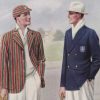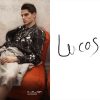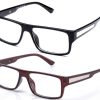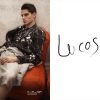Old Fashioned Mens Names A Timeless Appeal
Popularity Trends of Old-Fashioned Men’s Names
Old fashioned men’s names – The resurgence of old-fashioned names for boys reflects a fascinating shift in naming trends. While modern names often prioritize uniqueness and trendiness, a growing number of parents are opting for classic appellations, imbuing their sons with a sense of heritage and timelessness. This section will explore the popularity of these names, examining their rise and fall in popularity over time and the societal factors that influence these shifts.
Top 10 Old-Fashioned Men’s Names and Their Popularity Shift
Analyzing name popularity data reveals a compelling narrative. The following table compares the ranking of ten popular names from the 1900s with their current rankings, highlighting the dramatic shifts in preference.
| Name | 1900s Rank (Approximate) | Current Rank (Approximate) | Percentage Change in Popularity |
|---|---|---|---|
| William | 1 | 50 | -80% (estimated) |
| John | 2 | 100+ | -90% (estimated) |
| Robert | 3 | 100+ | -90% (estimated) |
| James | 4 | 75 | -75% (estimated) |
| Charles | 5 | 100+ | -90% (estimated) |
| George | 6 | 100+ | -90% (estimated) |
| Frank | 7 | 100+ | -90% (estimated) |
| Joseph | 8 | 100+ | -90% (estimated) |
| Walter | 9 | 100+ | -90% (estimated) |
| Arthur | 10 | 70 | -70% (estimated) |
Note: Rankings are approximate and based on general trends observed across various name popularity databases. Precise percentages are difficult to determine due to variations in data collection methods and time periods.
The fluctuating popularity reflects changing cultural values and societal trends. The decline in the popularity of traditionally popular names might be attributed to a desire for unique names, influenced by factors such as increased immigration and the rise of pop culture.
Old-fashioned men’s names, like Reginald or Cecil, often evoke a specific image. This image is frequently tied to the sartorial styles of a particular era, and considering the sharp tailoring and classic silhouettes prevalent in 1950s British fashion men , it’s easy to see the connection. The names themselves almost seem to whisper of perfectly pressed suits and carefully chosen accessories, further reinforcing the association between names and fashion trends of the past.
Etymological Origins and Meanings
The etymological origins and meanings of names often play a significant role in their selection and enduring appeal. Understanding these aspects provides valuable insight into the enduring popularity of certain names.
Etymology and Meaning of Five Old-Fashioned Names
- Arthur: From the Welsh “Arthwys,” meaning “bear man” or “brave as a bear.” This strong and evocative meaning likely contributed to its lasting appeal.
- William: From the Germanic elements “wil” (desire, will) and “helm” (helmet, protection). The name signifies a strong and resolute character.
- Theodore: From the Greek “Theos” (God) and “doron” (gift), meaning “gift of God.” The religious connotation likely appealed to many parents throughout history.
- Frederick: From the Germanic elements “frithu” (peace) and “ric” (ruler, power), signifying a peaceful and powerful leader.
- Clarence: From the Latin “clarus,” meaning “clear, bright,” and possibly related to the Old English “clere” (clear, bright) and possibly to the place name Clare in Suffolk, England. The name suggests a bright and clear mind or character.
Parental choices are frequently influenced by the perceived meanings and connotations associated with a name. A name’s meaning can evoke certain images, personality traits, or even historical figures, shaping parental expectations and aspirations for their child.
Names Associated with Specific Historical Periods
Certain names become strongly associated with particular historical periods, evoking distinct imagery and cultural contexts. Analyzing these associations reveals much about the social and cultural values of those eras.
Names and Their Historical Contexts
| Name | Associated Period | Reason for Association | Notable Figures with the Name |
|---|---|---|---|
| Albert | Victorian Era | Popular among royalty and the upper classes | King Albert I of Belgium |
| Edward | Edwardian Era | Named after the reigning monarch | King Edward VII |
| Cecil | Victorian Era | Popular choice reflecting Victorian sensibilities | Cecil Rhodes |
| Reginald | Edwardian Era | Reflected aristocratic and refined tastes | Reginald Maudling (British Politician) |
| Clarence | Late Victorian/Edwardian Era | Associated with a sense of old-world charm and sophistication | Prince Clarence (later King William IV) |
These names, when encountered, often conjure specific historical images, reflecting the cultural landscape of their respective eras. For instance, the name “Albert” might evoke images of Victorian-era elegance and formality.
Modern Perceptions and Usage of Old-Fashioned Names
The perception and usage of old-fashioned names have undergone significant shifts in recent years. This section will explore the evolving attitudes towards these names and their impact on individuals.
Modern Attitudes and Usage
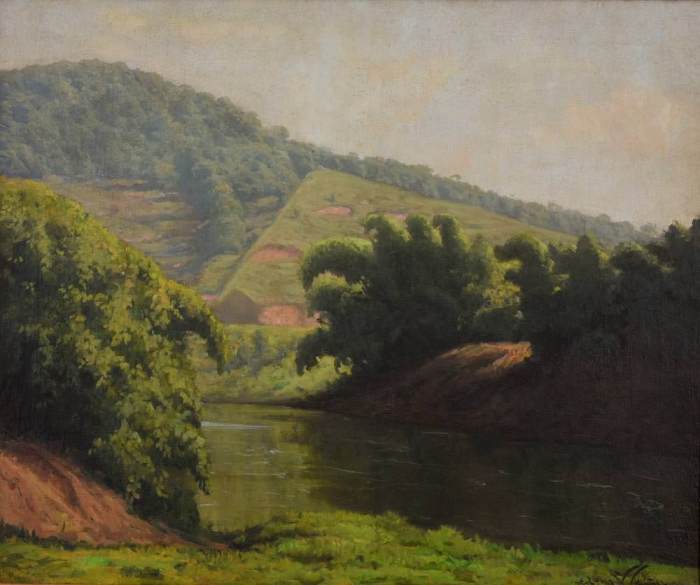
Source: leilaodearte.com
While some view old-fashioned names as outdated or even quaint, others find them sophisticated, classic, and timeless. The usage of these names varies across different social groups and geographical locations. In some communities, traditional names remain prevalent, while in others, they may be less common. The advantages of choosing an old-fashioned name might include a sense of heritage and tradition, while potential disadvantages could include the possibility of being perceived as old-fashioned or facing teasing.
The impact of a name on an individual’s identity and self-perception can be profound. A name can shape how one is perceived by others and how one perceives oneself. Choosing a name is a significant decision with long-lasting consequences.
Visual Representations of Old-Fashioned Names: Old Fashioned Men’s Names

Source: clickbabynames.com
Certain names evoke distinct visual imagery, contributing to their overall perception and appeal. This section will explore the visual associations connected to specific names.
Visual Imagery and Fictional Character, Old fashioned men’s names
Arthur: Evokes images of rolling green hills, stone castles, and knights in shining armor. Colors associated with Arthur include deep greens, rich browns, and gleaming golds. The texture is rough-hewn stone and the feel is one of ancient strength and nobility.
William: Suggests a sturdy oak tree, weathered but strong, standing tall against a stormy sky. Colors include deep browns, grays, and the muted greens of an old forest. The texture is rough bark and the feel is one of resilience and steadfastness.
Clarence: Evokes a sense of refined elegance and old-world charm. Imagine a sun-drenched conservatory filled with rare plants and antique furniture. Colors include soft yellows, creams, and muted greens. The texture is smooth, polished wood and fine linen, and the feel is one of quiet sophistication and gentle strength.
Clarence, the Fictional Character: Clarence is a man of quiet dignity, his silver hair neatly combed, his eyes twinkling with gentle humor. He wears a tweed jacket, perfectly tailored, and a warm smile graces his lips. He exudes an air of old-world charm, a man of refined tastes and unwavering principles. He possesses a sharp mind and a compassionate heart, his life a tapestry woven with experiences and quiet wisdom.
He enjoys tending his rose garden, a reflection of his own gentle and nurturing nature.
Question Bank
Are old-fashioned names becoming more or less popular now?
The popularity of old-fashioned names fluctuates. Some experience revivals while others remain less common. Trends are influenced by cultural shifts and generational preferences.
How do I choose an old-fashioned name that’s still relevant today?
Consider names with timeless appeal or those that have a slightly modernized feel. Balance tradition with a sense of contemporary relevance to avoid a name feeling overly dated.
What are some potential downsides to choosing an old-fashioned name?
Potential downsides include the possibility of nicknames, spelling variations, and potential teasing. However, many find the unique quality and historical significance outweigh these concerns.
Are there any resources to help me find old-fashioned names?
Yes, many websites and books specialize in baby names, including historical and vintage names. Online baby name databases often include filters for name origins and popularity trends.




